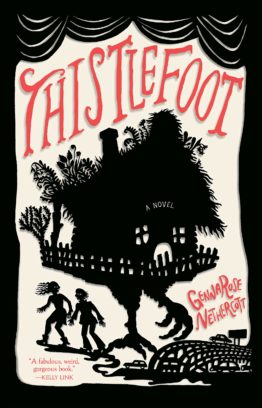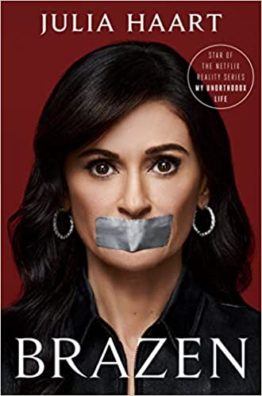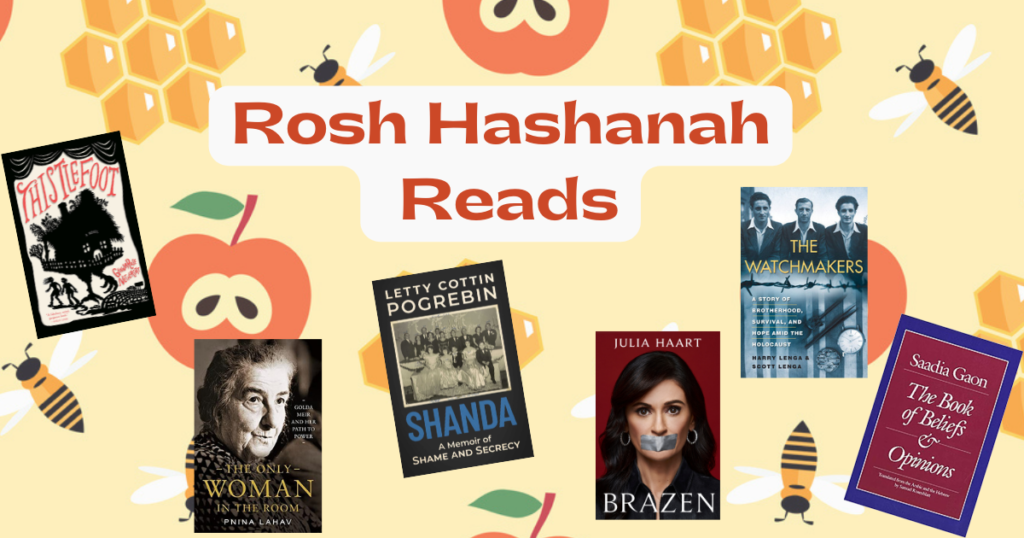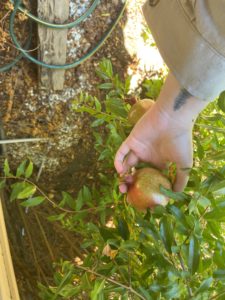Is Your #RoshGoal to Read More? Here are 6 Books to Get You Started
May it be sweet
Full of joy
Prosperity
Love
And,
well..
May it be.
by Hannah Dinkel, Director of Literary Arts
This time of year is one to reflect both as an individual, as well as on the societal, global and human perspective. But what does it mean to reflect? For me, reflection takes on the form of examining days past, as well as taking ethical, emotional “stock” of the present in which I find myself. Only then can the unknown, utter chaos of the future be woven into something concrete; and goals, hopes, and dreams begin to take shape. The beauty and uniqueness of the Jewish New Year, however, is the finite quality to be found even in the future, where we wish for the names of ourselves and those around us to again be inscribed in the Book of Life, which, according to the Talmud, is opened on Rosh Hashanah.
The powerful imagery created by the metaphor of the Book of Life and its subsequent opening and eventual closing has always spoken to me. I attribute this to my love of books – both what is written within their pages and what they represent to me. Books are central to my identity. They have long served me as a refuge, a comfort, an inspiration and a fulfillment of my ever-present desire to learn. During this difficult time in human history, books also have come to offer words in dark places where I have none of my own.
When it comes down to it, I love a good story, and I would like to share with you what I currently have on my bookshelf this holiday season:

Thistlefoot
GennaRose Nethercott’s debut novel is a modern fairytale inspired by Eastern European folklore. Magical and haunted moments ensue when a pair of reunited siblings receive a surprising Ukrainian inheritance and travel across the United States. If you’re a fan of golems and Baba Yaga, this is a story for you.
The Only Woman in the Room: Golda Meir and Her Path to Power
Pnina Lahav’s multidimensional portrait of the late politician demonstrates how the only woman yet to become prime minister of Israel broke the glass ceiling long before there was one to break. Fun fact: Golda Meir lived in Denver, and I gave tours of the home she shared with her sister and brother-in-law as an undergraduate.
Shanda: a Memoir of Shame and Secrecy
Feminist icon Letty Cottin Pogrebin’s deeply intimate account of the fear of shame and stigma that marked her upbringing in an immigrant Jewish family in New York City. This tale is told with humor, sharp wit, and affection as she slowly uncovers familial secrets and deceptions while managing to reveal universal truths about every family and the oftentimes complicated structure around which they thrive (or fail to). Shanda is a Yiddish word meaning disgrace, shame, scandal, or even a terrible embarrassment; depending on context.
 Brazen
Brazen
Julia Haart tells the story of a woman breaking out of her circumstances. Featured as part of our Women’s Night program at the St. Louis Jewish Book Festival, her portrait of a woman transitioning from housewife and mother in an insular community to big-time fashion designer, Julia Haart’s path to success is anything but traditional and conventional. She reminds us that it’s never too late to rediscover yourself and define your own path along the road.
The Book of Beliefs and Opinions
This book by Saadia Gaon is by no means a new read. Completed in 933 in response to fears of Karaite Judaism and general perceived areligious ideologies spreading, the Judeo-Arabic text is the first systematic presentation and philosophic foundation (in alignment closely with philosophical perspectives borrowed from the Greeks) of the dogmas of Judaism and is a fantastic example of ancient religious apologetics in response to social and cultural movements. Reading this has been a labor of love – with many concepts and figures of speech and idiom sending me to the internet for answers.
Watchmakers
Watchmakers by Scott Lange is a loving project-turned holocaust testimony between a father and son. This year’s featured author for our Kristallnacht program at the St. Louis Jewish Book Festival, hosted in partnership with the newly-renovated St. Louis Kaplan Feldman Holocaust Museum, brings with him a story for the ages of survival, luck, perseverance and priceless descriptions of Hasidic life in pre-war Poland.
Whether reading in 5283 to laugh, cry, escape, pass time, or any combination of those, may your name make it into the most important book, the Book of Life, and may your year be full of learning, successes, discovery, and, well, life. Shanah tovah u’metuka!
L’chaim!


